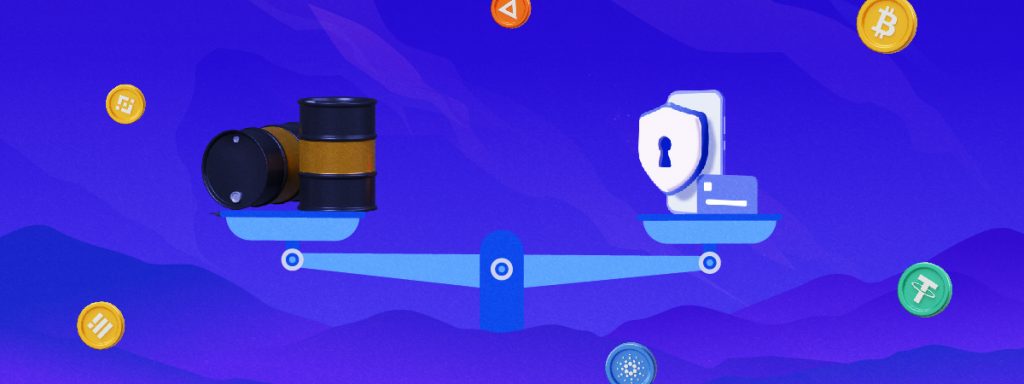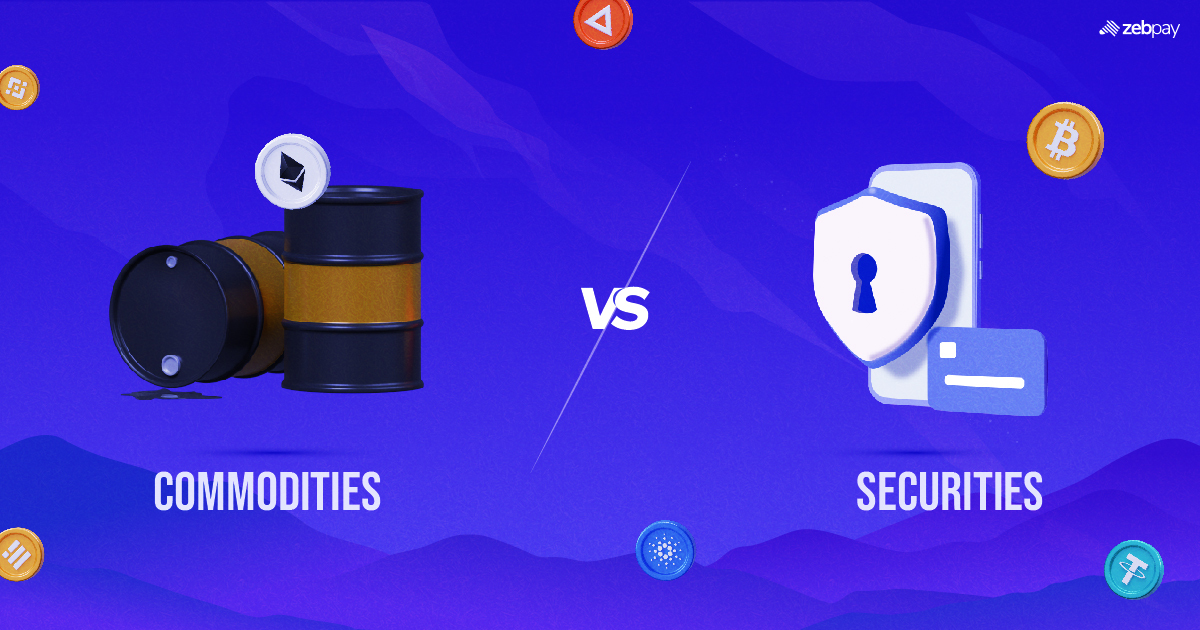Introduction
Crypto assets have become really popular in the past few years. People from all walks of life, like investors and fans, are getting into it. But as the crypto market changes, it’s essential to understand the difference between securities and commodities in this world. In this article, we’ll explore what securities and commodities are in crypto.
Understanding Securities in Crypto
Definition and Characteristics
Usually, when we talk about securities, we mean things like papers or documents that show you own a part of something valuable or that someone owes you money. In the world of crypto, securities have changed a bit. Now they’re digital tokens that show you own part of an item or project. These tokens can have features like giving you a share of profits or the ability to get debts repaid.
Regulatory Framework
Organizations that make rules, called regulatory bodies, are crucial to keep investors safe and ensure the market is fair. Even though the crypto market doesn’t have a lot of rules yet, these bodies still have some control over how people invest. For instance, in the US, the SEC regulates the crypto market. Securities must follow certain rules like registration and disclosure. They also make sure users don’t cheat or lie. Different places might have different rules, with some being stricter than others.
Examples of Security Tokens
In the crypto market, tokens called security tokens have started to become popular. These tokens show that you own something valuable like real estate or a fund for investing in new businesses. Some examples are the BB1 token by Bitbond Finance and the Bcap token. People have started to notice Security Token Offerings (STOs) as a way to raise money with rules to follow. Projects with security tokens have shown that this method can have cool advantages. These include the ability to buy and sell, own fractionally, and accessibility.
Benefits and Risks of Security Tokens
When you invest in security tokens, there are some key benefits. You can easily turn them into cash, trade them all day and night, and you don’t need as many middlemen. Plus, you can own fractions of something valuable. But there are also some risks you need to be aware of. Following all the rules can be hard, the market can go up and down a lot, and you have to be really careful when you research and investigate. Security tokens have the abillity to change the traditional financial markets we’re used to.
Read more: Crypto Investing vs Crypto Trading
Understanding Commodities in Crypto
Definition and Characteristics
In regular finance, commodities are things like raw materials or farm products traded on special platforms. But in the crypto world, commodities have become digital tokens that show you own or have rights to physical things. These can be valuable metals, oil, or even real estate.
Regulatory Framework
Regulatory bodies ensure that commodities are traded fairly and everyone is safe in the crypto industry. They want to make sure the market is stable and investors are protected. The rules for commodities can be different depending on where you are, and they usually include following rules to prevent money laundering and Know-Your-Customer (KYC) regulations.
Examples of Commodity Tokens
In the crypto market, there are tokens called commodity tokens that have become quite popular. They let investors be a part of owning physical things without actually owning them directly. Some well-known examples are Paxos Gold and Petro. These tokens have advantages like fractional ownership and easy transferability. Projects with commodity tokens have shown that this new asset class can work and be attractive to investors.
Benefits and Risks of Commodity Tokens
When you invest in commodity tokens, there are many novel advantages. They are easy to access and liquidate, and they can protect you from changes in regular markets. But there are also risks you need to be careful about. The prices can be highly volatile, regulations may be uncertain, and safe storage can be a concern.
Read more: What are Crypto Derivatives
Comparing Securities and Commodities in Crypto

Key Similarities
Security tokens and commodity tokens have some things in common. They let you own fractions of an item, you might get dividends or a share of profits, and access is easier. They also have to follow the rules set by the government, just like regular securities and commodities.
Key Differences
Even though security and commodity tokens have some things in common, they also have important differences. Security tokens show that you own part of something, like a company. Commodity tokens, on the other hand, show that you own or have rights to physical things. The rules for each of these tokens might be different too. Securities usually have stricter rules to follow. Investors need to understand these differences so they can make optimal choices.
Read more: What are Crypto Trading Bots
Summary
It’s crucial to know the differences between securities and commodities in the crypto market. Security tokens show that you own part of something, like a company or a project. They follow rules that protect investors. Commodity tokens let you own or have rights to physical things, and they can give you a chance to own fractions of an item and be exposed to several assets. By understanding these options, their regulations, and their differences, investors can make smart choices about where to put their money.
You can read more about Crypto, Blockchain and Web 3.0 on ZebPay Blogs. Click on the button below and join the millions trading on ZebPay.
Frequently Asked Questions on Commodities vs Securities in Crypto
What are the main regulatory challenges for security tokens?
The main regulatory challenges for security tokens stem from the need to comply with securities laws. Security tokens are subject to regulations surrounding investor protection, anti-fraud measures, and disclosure requirements. Navigating the complex regulatory landscape can pose challenges for issuers and investors.
How do commodity tokens differ from traditional commodities?
Commodity tokens differ from traditional commodities in that they represent ownership or rights to physical assets in a digital form. Traditional commodities are tangible goods traded on exchanges, whereas commodity tokens offer a digital representation of ownership without the need for direct physical possession.
Are there any limitations to investing in security tokens?
Yes, there are limitations to investing in security tokens. These limitations can include regulatory restrictions, lack of liquidity in certain markets, limited access to certain investor classes due to accreditation requirements, and potential volatility in the crypto market. It is important for investors to thoroughly research and understand these limitations before engaging in security token investments.
Can commodity tokens provide hedging opportunities?
Yes, commodity tokens can provide hedging opportunities. By investing in commodity tokens, investors can gain exposure to the price movements of physical assets without having to directly own or store them. This can potentially act as a hedge against traditional market fluctuations and provide diversification in investment portfolios.
What are the key factors to consider before investing in either security tokens or commodity tokens?
Before investing in security tokens or commodity tokens, it is important to consider several key factors. These include:
a. Regulatory Compliance: Understand the regulatory requirements and compliance obligations associated with the specific token type in your jurisdiction.
b. Project Evaluation: Thoroughly research the underlying project or asset behind the token. Assess its viability, potential for growth, and the team’s expertise.
c. Market Liquidity: Evaluate the liquidity of the token in the market. Consider the trading volume, exchange listings, and overall market depth.
d. Risk Assessment: Assess the potential risks associated with the specific token, such as market volatility, regulatory uncertainties, technological risks, and the project’s roadmap.

